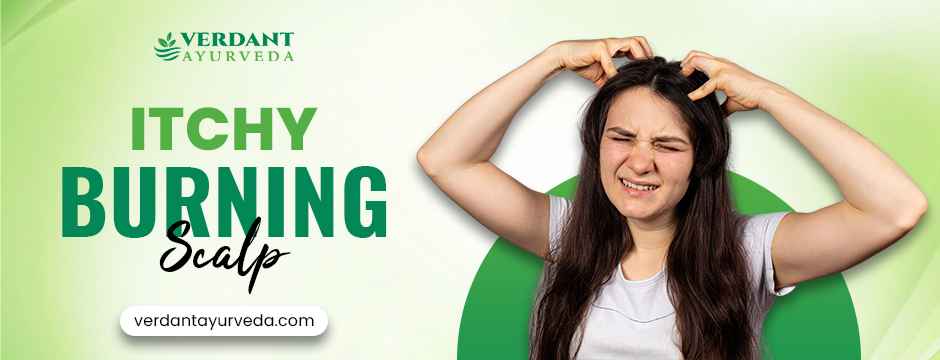
An itchy head at night can be more than just a minor annoyance—it can disrupt sleep, impact daily activities, and even indicate underlying health issues. Many people experience this frustrating condition, but few understand the root causes or the best ways to address it. While occasional itching may not be a cause for concern, persistent nighttime scalp irritation may require attention. Various factors, from dry scalp and dandruff to more complex skin conditions like eczema or fungal infections, can trigger nighttime itchiness. Additionally, lifestyle choices, such as diet, hair care routine, and stress levels, play a crucial role in scalp health.
If you’ve been struggling with an itchy head, it’s important to identify the cause and find the right remedy. Fortunately, several natural and effective solutions can help alleviate discomfort, ensuring a restful night’s sleep. This guide will explore the most common causes of nighttime scalp itching and provide the best remedies to help you regain comfort and promote a healthy scalp.
Common Causes of Nighttime Scalp Itchiness
Dry Scalp
A dry scalp often results from environmental factors like cold weather, low humidity, or excessive use of harsh hair products. The lack of moisture leads to flaking and itching, which can worsen at night when the body is at rest and not producing as much natural oil.
Dandruff and Seborrheic Dermatitis
Dandruff is a common cause of scalp itchiness and is often accompanied by white flakes. It occurs due to an overgrowth of a yeast-like fungus called Malassezia. Seborrheic dermatitis is a more severe form of dandruff, leading to redness, greasy patches, and intense itching.
Allergic Reactions
Shampoos, conditioners, and hair dyes often contain harsh chemicals that can cause allergic reactions, leading to an Itchy Head at Night. Ingredients like sulfates, parabens, and artificial fragrances can irritate the skin, especially if used frequently.
Head Lice
Although more common in children, head lice infestations can cause severe scalp itching, especially at night. These tiny parasites feed on blood and lay eggs on hair strands, leading to persistent irritation.
Eczema and Psoriasis
Both eczema and psoriasis can affect the scalp, causing redness, scaling, and intense itching. These autoimmune conditions often flare up due to stress, diet, or environmental factors.
Scalp Fungal Infections
Fungal infections like ringworm can lead to red, scaly patches and intense itching. These infections thrive in warm, humid conditions and require antifungal treatment.
Stress and Anxiety
Stress triggers inflammation in the body, including the scalp, leading to increased sensitivity and itching. Anxiety can also make one more aware of bodily sensations, amplifying the feeling of itchiness at night.
Poor Hygiene or Product Buildup
Not washing the hair regularly can lead to oil, sweat, and product buildup, creating an environment for bacteria and fungi to thrive. This can cause irritation and nighttime itching.
Menopause
Hormonal fluctuations, particularly during menopause, can contribute to scalp itchiness. As estrogen levels decline, the skin and scalp tend to become drier, leading to irritation and discomfort. Additionally, hormonal imbalances can exacerbate conditions like seborrheic dermatitis or eczema, making nighttime itching more pronounced.
Best Remedies for an Itchy Scalp at Night
Use a Moisturizing Shampoo
Opt for a gentle, hydrating shampoo free from sulfates and parabens. Ingredients like aloe vera, coconut oil, and glycerin help soothe and moisturize the scalp.
Apply Natural Oils

Oils like coconut oil, jojoba oil, and tea tree oil have anti-inflammatory and antifungal properties that can help relieve itchy burning scalp. Apply a small amount before bed and rinse in the morning.
Try Apple Cider Vinegar Rinse
Apple cider vinegar has antimicrobial properties that help balance the scalp’s pH and reduce itching. Mix equal parts water and vinegar and use it as a rinse after shampooing.
Maintain Proper Scalp Hygiene
Wash your hair regularly with lukewarm water to remove excess oil and product buildup. Avoid overwashing, as it can strip natural oils and exacerbate dryness.
Avoid Harsh Chemicals
Switch to hypoallergenic hair care products that are free from sulfates, alcohol, and artificial fragrances. Look for soothing ingredients like chamomile, lavender, and neem.
Use a Humidifier
If your environment is dry, a humidifier can help maintain optimal moisture levels, preventing scalp dryness and itchiness.
Manage Stress
When you practice various techniques of relaxation like meditation and yoga, you can be able to reduce your stress levels. Lowering stress can help improve overall skin health and minimize inflammation.
Consult a Dermatologist
If the itching persists despite trying home remedies, consult a dermatologist. They can diagnose underlying conditions and recommend treatments such as antifungal creams, medicated shampoos, or corticosteroids.
Conclusion
An Itchy Head at Night can be disruptive, but understanding the causes and implementing the right remedies can provide relief. Whether it’s due to dryness, dandruff, stress, or an allergic reaction, addressing the root cause is key to maintaining a healthy scalp. If you’re looking for natural, Ayurvedic solutions to soothe scalp irritation, Verdant Ayurveda guides you throughout your journey and helps by providing solutions that nourish and restore scalp balance. Visit us to explore holistic remedies to keep your scalp healthy and itch-free. With our suggested remedies, you can be able to get relief from an itchy head.
